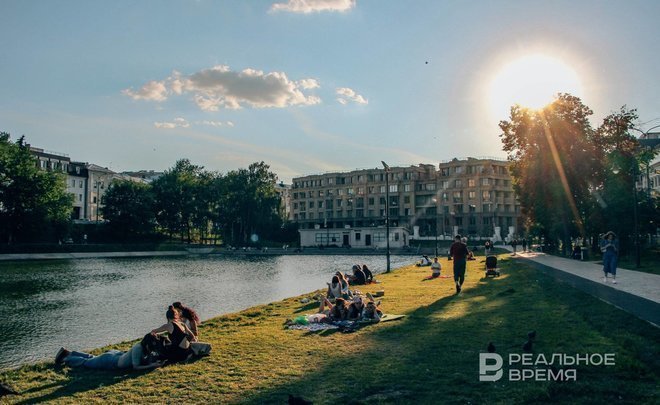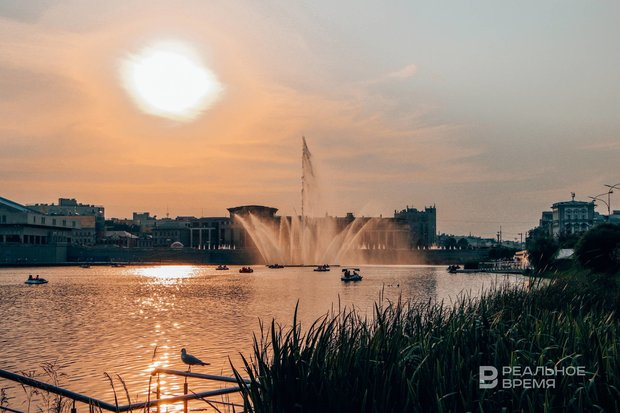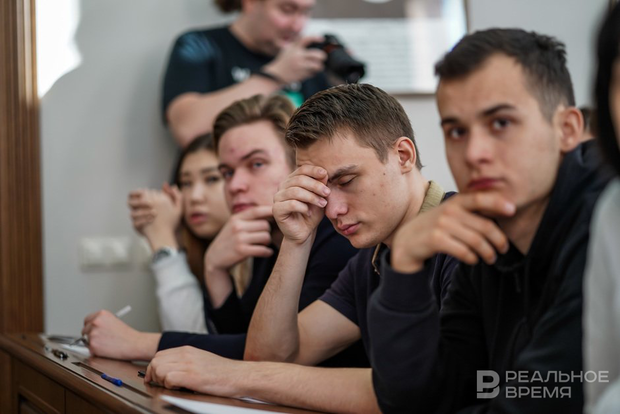‘There can be a rise in road accidents in the streets during the first 15 days. Though we’re talking about going only one hour forward’
How the clock change can influence Tatarstan residents

State Duma deputies started to talk about changing the clock in summertime again. As people’s representatives Mikhail Matveyev said, a bill on clock change was adopted for discussion in parliament. Experts surveyed by Realnoe Vremya unanimously say that the clock change will do nothing, and it can get only worse. Read more about it in our report.
“The best time for Tatarstan”
As deputy Mikhail Matveyev wrote, he prepared the bill on the summertime clock change at Russians’ request who regularly ask to “establish a clock providing a real daytime.” The people’s representative thinks that the adoption of the bill would bring to a significant improvement of efficacy of the daytime in the evening used by the population — by 200 hours a day and more. But the Russian government didn’t back the bill on summer and winter time transition as early as mid-April. It was indicated that the summary of the bill didn’t have the information about the amount and sources of funding of dedicated expenses and on technological and organisational measures that will be necessary to switch to summertime.
As Realnoe Vremya was explained by Director of the Engelhardt Astronomical Observatory and Kazan Federal University Yury Nefedyev, there is no summer or winter time. There is zone time and legal time. The deputies are debating on precisely the transition to the latter, or moving the block forward by one hour. The scientist stressed that legal time can be introduced in Russia only according to the government’s decree.
“Zone time is used in Russia now. Kazan is in the centre of the third zone time. That’s to say, Moscow time is the best time for Tatarstan. And given the fact that we are close to the central meridian of the third zone, it is the most comfortable time for the republic that can exist. Especially for biological clock. This means at midday the sun is where it should be. And in Moscow there is a move by thirty minutes. One can feel it. When you go there, you feel something is wrong, some delay is felt,” said Nefedyev.

According to him, legal time is used in other countries too. Moreover, even equipment, computers, phones are tuned to legal time. The expert says the clock move back and forward allows saving electrical energy and helps work in the countryside because daytime starts earlier.
“The consequences of the transition to daytime can have the following drawbacks: there can be a rise in road accidents during the first 15 days. Though we are talking about a moving one hour ahead, this time can a strong influence on our lives. Heart diseases can even get worse among people when switching to other time. In general I would leave it as it is because we already got used to living according to the same clock during the year. It is the most comfortable time for Tatarstan and Kazan in particular,” Yury Nefedyev commented on the initative.
“A change by an hour will influence people's performance”
Candidate for Economic Sciences and Professor of Kazan Federal University Igor Kokh explained how the clock change will affect the operation of enterprises. The expert stressed we cannot expect any significant positive economic changes from the clock change. The scientist says that now the Russian and Tatarstan economy are operating almost 24/7, this is why the shift in the daytime has little impact on it.
“If we are talking about daytime enterprises, not those operating all day, their day in summer ends already ends when it is not dark. This is why a move forward by an hour won’t impact on their performance,” the economist added.

Kokh also said that the clock change causes a lot of local problems. Firstly, there are troubles where production or service is around the clock. Such enterprises have to change the schedule, shift timetable and so on.
“Secondly, people feel this transition first-hand. Especially those who work according to the same schedule. A move by an hour anyway affects people, their performance and well-being. This is why there is no great necessity in switching to summer and winter now in the existing conditions,” Igor Kokh concluded.
“The clock change by an hour ahead won’t almost affect most of the population”
Sleep physician of Health Care Unit of Kazan Federal University Liliya Shagiakhmetova said that the clock change by an hour ahead won’t almost affect most of the population and people won’t even notice it. Only those who are weather-sensitive. But the discomfort because of the clock change will pass during the day, and these people’s state will go back to normalcy.
“Most people move their internal biological clocks three or four hours ahead themselves. If a person has a regime on working days, it changes at weekends because they can sleep longer. This is how clocks move. Some allow moving the clock even more — by four or five hours. Then the clock changes again after the weekend,” explained Shagiakhmetova.
The specialist added that healthy people aren’t expected to feel discomfort after moving the clock an hour forward. Some can fall asleep with some difficulty or wake up worse, but this passes away during the day.

To avoid such discomfort, Liliya Shagiakhmetova recommends sticking to the sleeping regime. One should go to sleep at the same time and do not move the schedule more than one or two hours forward. The organism adapts quickly, gets accustomed to the transition for such a short period of time. And if the shifts are big, problems can arise.
“People with chronic diseases can be recommended to keep an eye on their pressure when moving the clock. They are advised to take pills prescribed by doctors. If they feel worse, they’d rather stay home, not plan serious events and spend the day in a calm mode,” concluded Realnoe Vremya’s interlocutor.